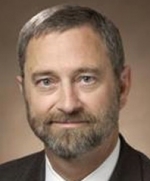Dr. James Kelly believes that our system doesn't allow for as much time as might be necessary to examine the signs and symptoms of someone with a brain injury. But taking that extra time might mean developing a more accurate diagnosis and, therefore, a more effective treatment plan for the patient.
Learn more about some of the treatments available for those recovering from brain injury and PTSD using our Treatment Hub.
Watch more videos from Dr. James Kelly.
My particular bias always has been that you have to spend an unwarranted, in the medical healthcare system, amount of time paying attention to that individual's symptoms and signs on examination. You don't get paid for doing that in the reimbursement scheme. And so I was famous in my health care jobs before the military job for making half of a salary because I insisted on spending twice as much time with a given individual. But I would often be able to make a diagnosis that hadn't been made before and aim that individual in a treatment plan that wouldn't have been created otherwise. And so you know I'm certainly not the only one that ever did that in life. But the idea is if you get into the healthcare system that requires lots of patients to go through just to make a living, you never have the opportunity to delve in in great detail in any given individual's case. And I just refuse to accept that. I, you know, my family suffered as a result of I'm not ... my not buying into that whole model but they understood that the idea was to do it right. That was the whole basis of that approach and I think that that applied to this setting -- NICoE and the Marcus Institute and others. It's certainly not just those we're actually seeing the benefit of that at that approach. It does require a lot of philanthropic support to make it happen. Right now the pressures are actually, unfortunately, very similar in the VA to see lots of patients and to see them quickly so that there are waiting lists that are thought to be pressure points and an embarrassment, if you will, to the VA. It's really unfortunate because I think there is, in that kind of a setting, an opportunity for true excellence to evolve with the the level of expertise and the patient population that they have but they're under a different kind of pressure. This video was produced by BrainLine thanks to generous support from the Infinite Hero Foundation.
This video was produced by BrainLine thanks to generous support from the Infinite Hero Foundation.
About the author: James Kelly, MA, MD, FAAN
James Kelly, MA, MD, FAAN, a neurologist, is one of America’s top experts on treating concussions. He currently serves as Executive Director of the Marcus Institute for Brain Health.

